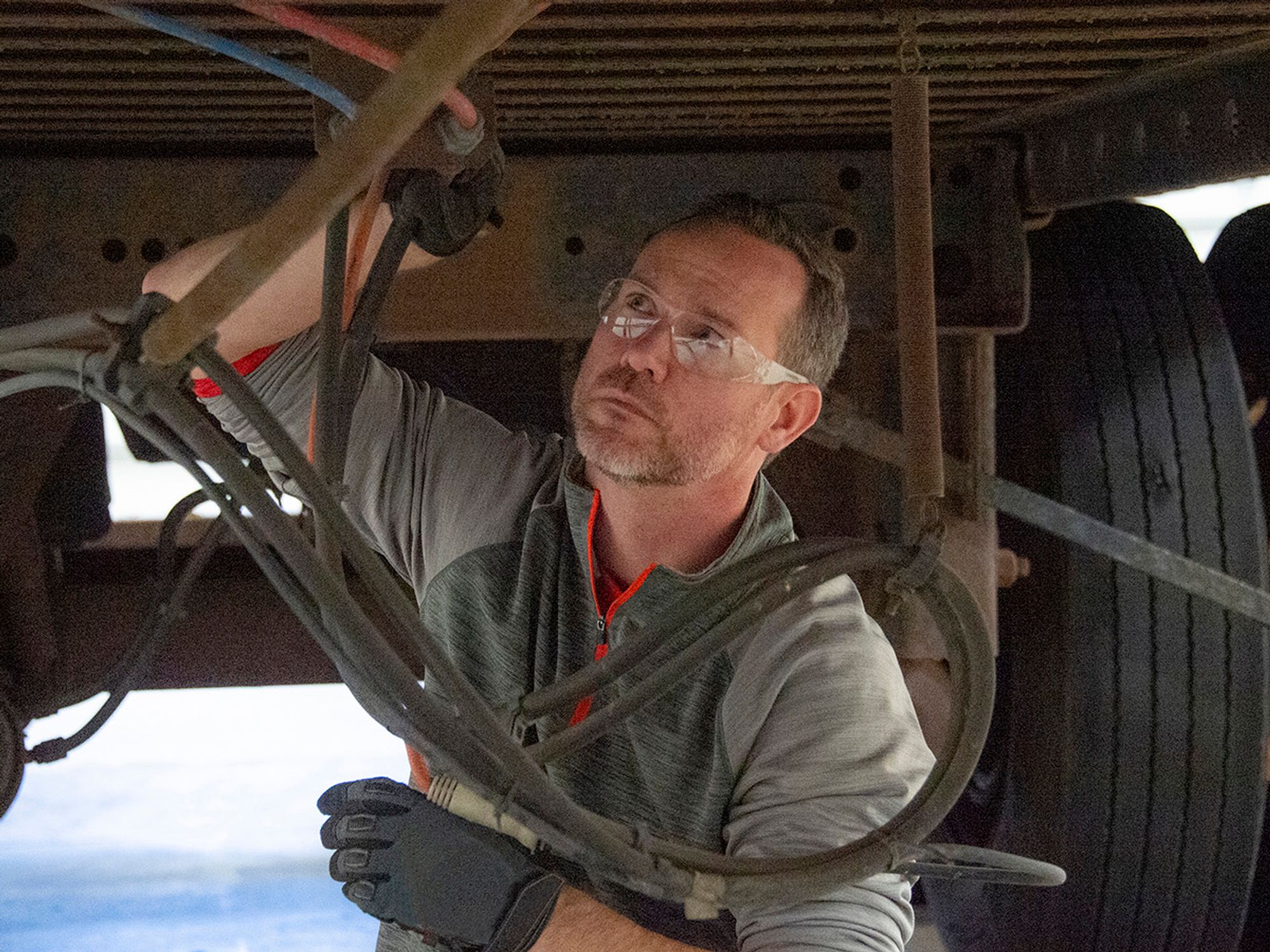Qualifications: Annual and brake inspectors

- Annual inspectors of commercial motor vehicles (CMVs) must understand the inspection criteria, be able to identify defective components, and have mastered the methods, procedures, tools, and equipment used to perform an inspection. Motor carriers and intermodal equipment providers (IEP) must ensure that all inspections, maintenance, service, or repairs to the brakes of CMVs are performed by qualified brake inspectors.
In general, inspection, maintenance, and repairs can be performed by anyone the carrier deems competent. There are no specific qualifications for mechanics. However, the regulations do specify the qualifications for two specific types of work:
- Performing annual inspections, and
- Performing brake inspections or other brake work.
Annual inspectors
Individuals who perform annual vehicle inspections as required under 49 CFR 396.17 must:
- Understand the inspection criteria in Part 393 and Appendix A to Part 396;
- Be able to identify defective components;
- Be knowledgeable of and have mastered the methods, procedures, tools, and equipment used when performing an inspection; and
- Have enough experience and/or training to perform inspections, by either:
- Completing a government-sponsored training program;
- Having a state or Canadian provincial qualification certificate to perform CMV safety inspections; or
- Having at least one year of training and/or experience, which can include participation in a commercial training program or experience as a CMV mechanic or inspector.
Carriers need to have evidence that their inspectors are qualified and must keep that evidence for the entire time the individual is performing inspections plus one additional year. No evidence is needed for inspections performed by the state or an enforcement agency.
NOTE: If a motor carrier has a commercial garage, leasing company, or other facility perform its inspections, that other company can keep evidence of the inspector’s qualifications, but the motor carrier must be able to provide copies of that evidence to enforcement officials or risk a violation of 396.19.
Brake inspectors
Motor carriers and intermodal equipment providers (IEPs) must make sure that all inspections, maintenance, repairs, or service to the brakes of CMVs are performed by qualified brake inspectors.
A brake inspector is defined as an employee of a motor carrier (or IEP) who is responsible for ensuring that brake inspections, maintenance, repairs, or service meet the safety standards. Brake inspectors employed by leasing companies, commercial garages, or other third parties are not subject to the qualification requirements.
The brake inspector qualifications are listed in 396.25 and are similar to the requirements for persons performing annual inspections. The requirements can be met in such ways as completing an approved apprenticeship or training program or through experience in performing brake-related tasks.
Carriers must keep documentation on file showing that brake inspectors are qualified, and it must be kept until one year after the person is no longer employed as a brake inspector.
Driver qualifications
Simply having a commercial driver’s license (CDL) does not qualify a person as a brake inspector. A driver who holds a CDL with no air-brake restriction may inspect an air-brake system but may only adjust the brakes if being supervised by a qualified inspector (under approval from the carrier). The supervision may be done by telephone.
Drivers may be deemed qualified to perform limited tasks, such as brake inspection and adjustment, without being fully qualified to perform other brake-related tasks such as repair or replacement.
